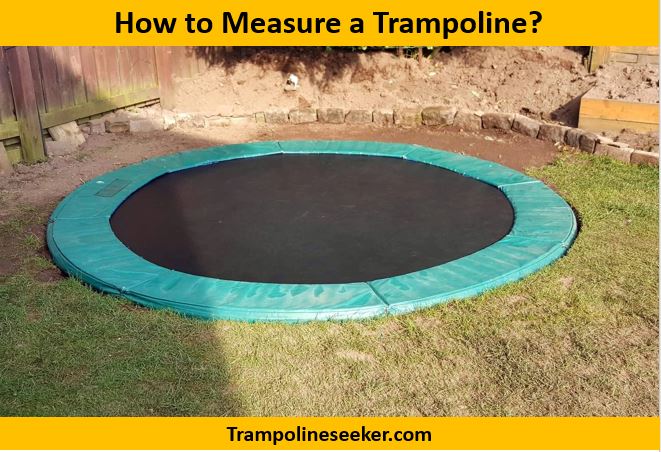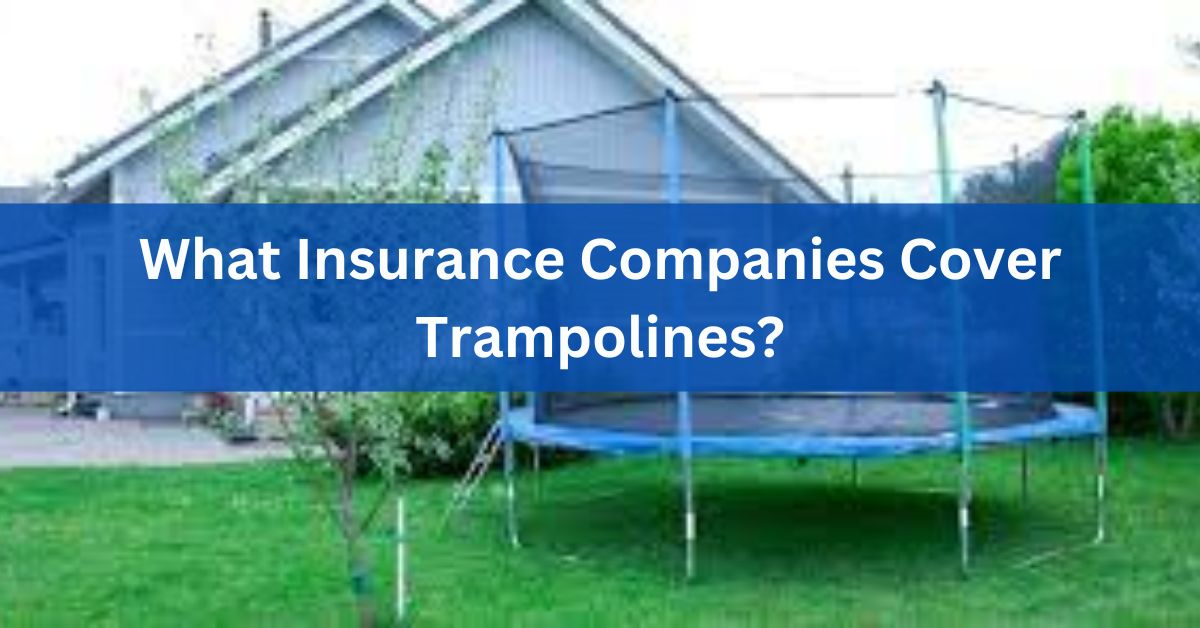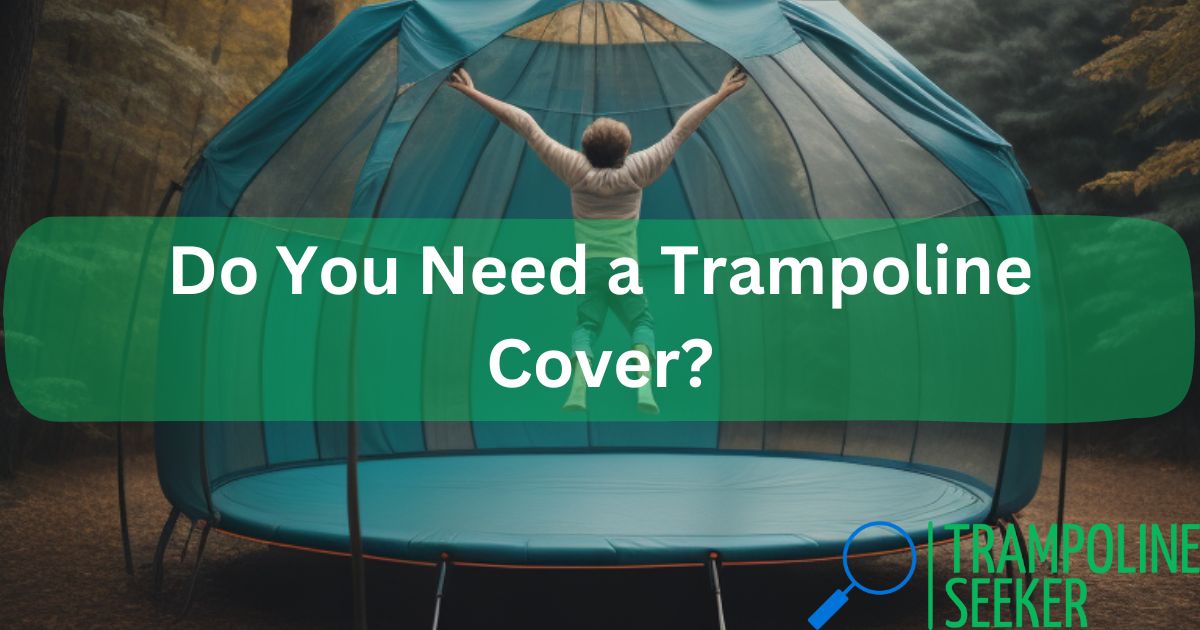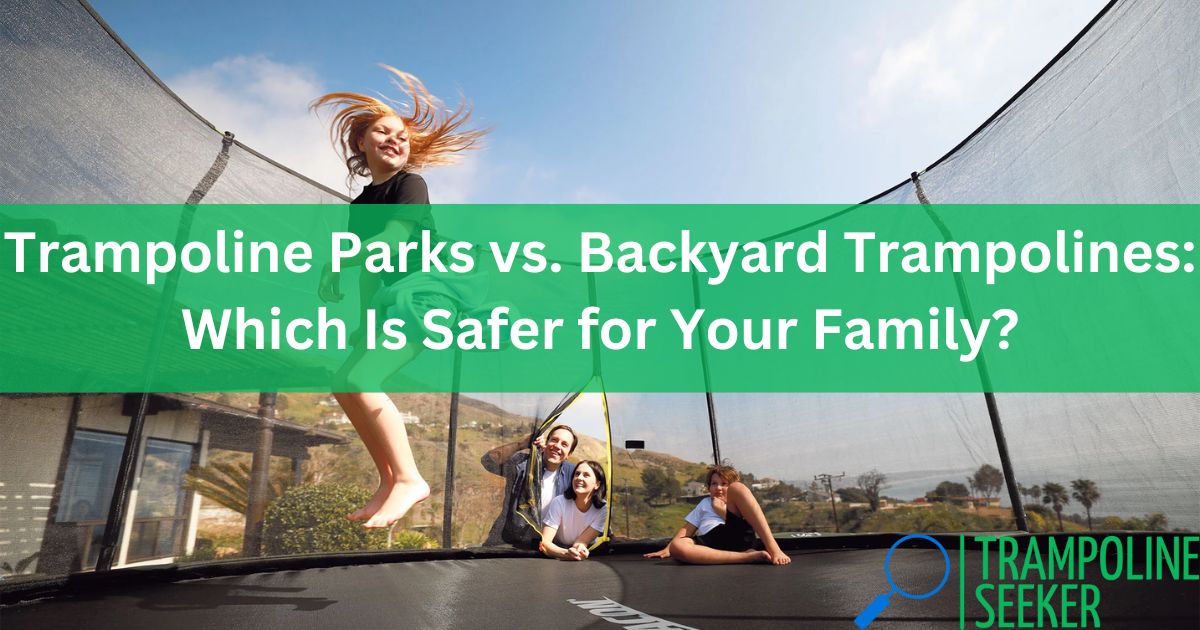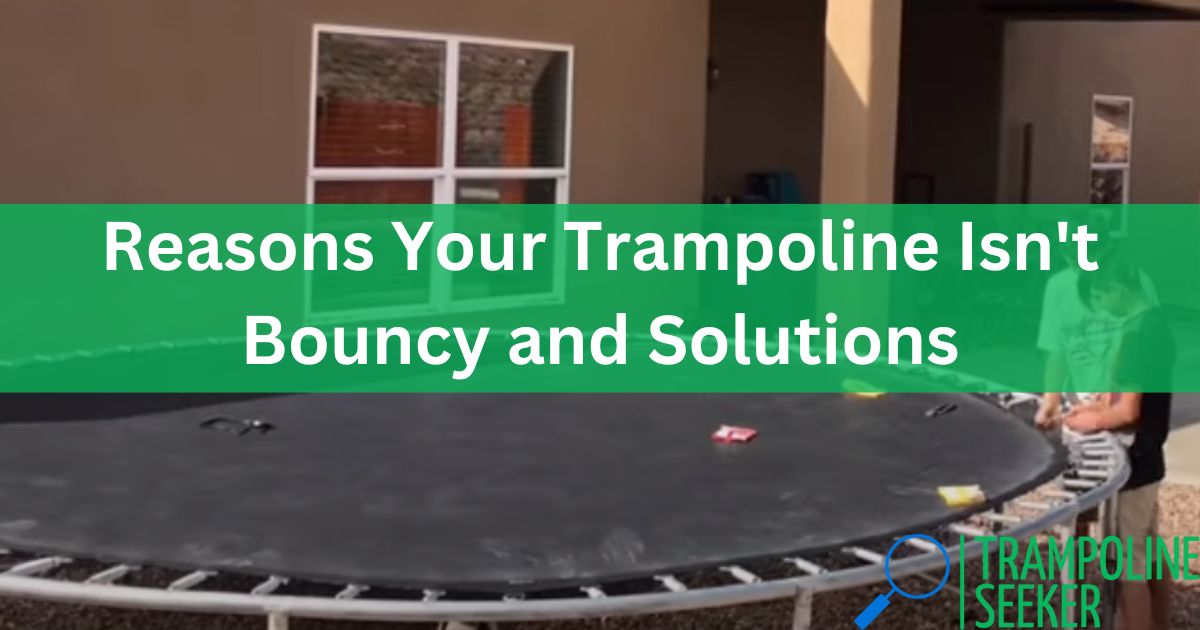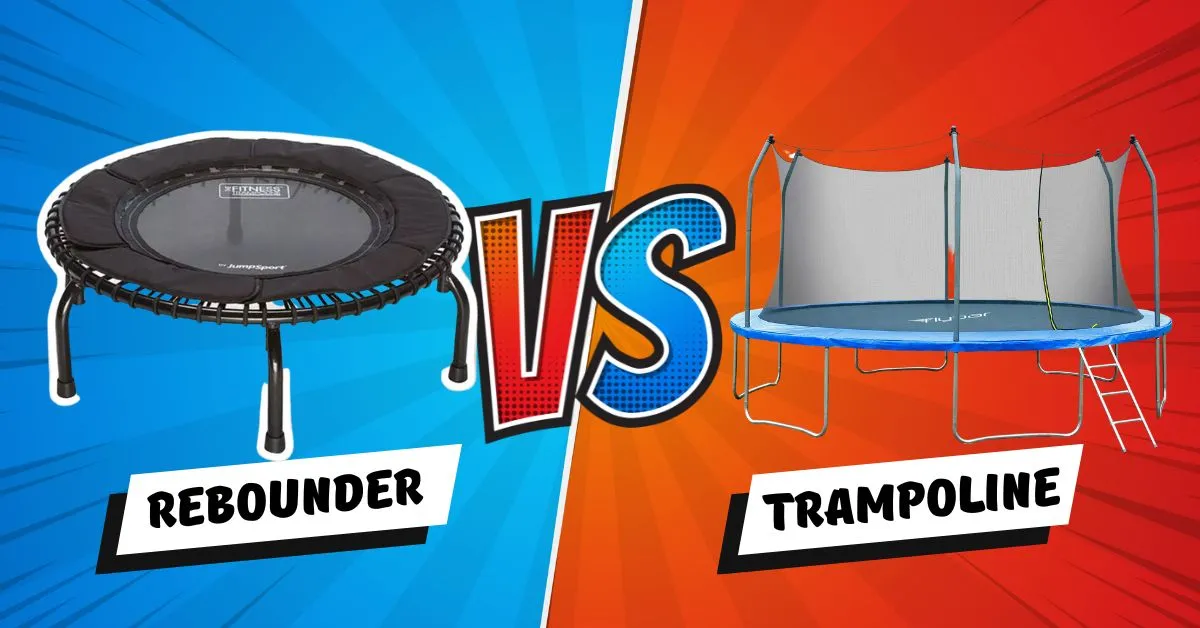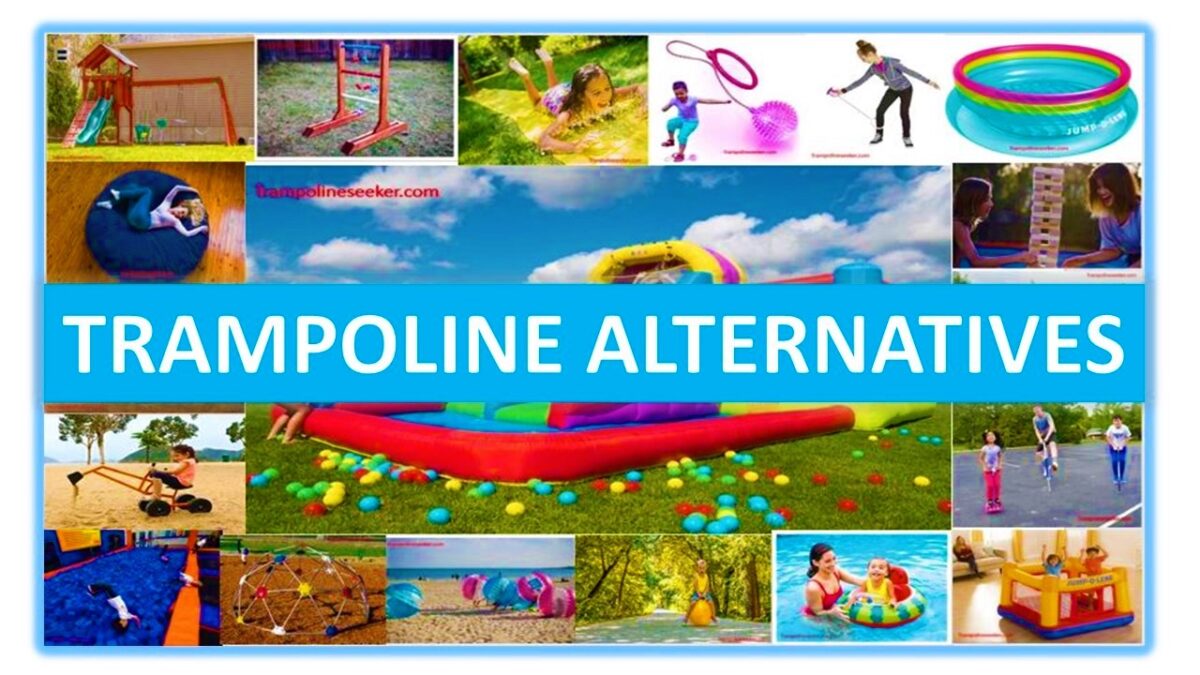I’ll never forget the day my 7-year-old daughter Lily came bounding up to me, her eyes shining bright with excitement. “Daddy, can we get a trampoline for our backyard? Pretty please?”
My initial reaction was to say yes. What kid doesn’t love bouncing on trampolines? But then I remembered that we’re renting this house, which gave me pause. Can you have a trampoline at a rental property? I honestly had no idea. 🤷♂️
As a responsible parent and tenant, I decided to do some investigating before giving Lily an answer. Here’s what I learned during my informative journey into the world of trampolines and rental regulations. 🧐
A Quick Overview: Can You Have a Trampoline at a Rental Property?
After extensive research, the short answer I found is “maybe, but probably not without the landlord’s permission”. Landlords often prohibit trampolines due to liability concerns. There are also insurance issues to consider.
I’ll expand more on these topics throughout this post. But first, let’s take a look at why my daughter was so eager to have a trampoline in the first place!
Why Do Kids Love Trampolines So Much?
When I pictured Lily bouncing happily on a trampoline, I totally understood the appeal. Trampolines provide hours of fun and exercise!
Here are some of the top benefits of trampolines for kids:
✅ Promotes physical activity and fights obesity
✅ Improves balance, coordination, strength & agility
✅ Develops skills for sports like gymnastics or diving
✅ Provides thrilling entertainment outside
With obesity being such a problem these days, I love that trampolines get kids active in the fresh air instead of staring at screens. 📱 No wonder they’re so popular, right?
Over 100 million Americans have access to a trampoline! With numbers like that, trampolines must be allowed at rental properties too…or so I thought. 💭
When I decided to look into the rules though, I uncovered an unsettling truth about the dangers of trampolines. 😨
The Alarming Risks and Liabilities of Trampolines
Here are some shocking statistics I learned about trampoline injuries:
✖️ Over 100,000 emergency room visits for trampoline injuries occurred in 2018 alone
✖️ Around 300,000 total medically-treated trampoline injuries took place in 2018
✖️ Nearly 1/3 of ER trauma cases were serious fractures of legs, arms, ribs or skulls
I was stunned! 😲 With numbers like this, it makes sense why the American Academy of Pediatrics recommends against using trampolines at all in homes or playgrounds.
Trampolines can even qualify as an “attractive nuisance” in legal terms. This means trespassers who get injured could have grounds to sue the property owners if an unsafe trampoline “attracted” them onto the premises. 🚧
Yikes! No wonder landlords might prohibit them. Trampolines clearly present major legal liabilities.
Evaluating My Rental Agreement Terms
After learning those alarming statistics, I immediately checked my rental lease agreement to see if trampolines were mentioned at all.
I found this clause: “Tenants need written permission to install items like trampolines. Landlord is not liable for issues with unauthorized additions.”
So the rental contract doesn’t outright ban trampolines. 👍 But it does require written authorization first.
It also attempts to absolve my landlord of liability with an unauthorized trampoline. But after doing more reading, I found that might not fully protect landlords in the event of an injury lawsuit. 🚫
Understanding Landlord Liabilities as Property Owners
I’m not a legal expert, but my research indicated injured parties can still take landlords to court over trampoline accidents – even when liability waivers are signed. 😣
Plaintiffs could claim the landlord was “negligent in allowing unsafe conditions on the premises”. And landlords typically have more money than cash-strapped tenants.
So when substantial medical bills stack up after a serious trampoline injury, who do you think gets sued? The property owners with deeper pockets – not the tenant who actually bought the trampoline. 💸
That’s why most landlord insurance policies explicitly exclude liability coverage for trampolines too. Insurance companies know full well the risks involved! 🚫🪜🚑
And even just asking about trampoline policies could cause premium hikes in some cases. Yikes…talk about catch-22!
No wonder landlords tend to prohibit trampolines altogether. As property owners, the liability risk just isn’t worth it for them. 🙅♂️
Exploring Trampoline Safety Measures
My 8-year-old self would have begged to differ. Man, I loved jumping on my friend’s trampoline as a kid! We had the best time doing flips and games for hours.
But as a parent now, I knew I couldn’t take Lily’s safety lightly. Trampolines do pose real hazards, especially without precautions.
So I looked into recommended safety guidelines for trampolines from reputable medical sources to see if that could mitigate the risks. 🪜🚑
Here are a few of the top trampoline safety tips I found:
✅ Install netting around entire trampoline
✅ Only allow one jumper at a time
✅ Set up trampoline away from structures and fences
✅ Always supervise children while they jump
✅ Ensure proper maintenance to prevent decay
Could we follow strict rules like this to allow a trampoline safely? I wasn’t sure…Lily is awfully young for solo jumping. And constant supervision outside isn’t realistic.🤔
Clarifying Insurance Implications at Rental Homes
Next I researched how getting a trampoline might affect my renter’s insurance policy on the house.
Turns out, many insurance policies completely exclude trampoline coverage or charge much higher premiums when they’re on the property.
Some renter’s insurance companies might allow trampolines, but only with special liability riders added onto the main policy, for hundreds of extra dollars per year. 💰
And those riders would NOT protect the landlord’s policy at all. That sent my mind spinning again…🤯
As a conscientious tenant and father, could I justify getting a trampoline knowing dangers and issues involved? My daughter might accept a subtle “no” now. But down the road if friends had them…oh boy. 😣
Let’s recap my investigative findings so far…
Can You Have a Trampoline at a Rental Property? Key Takeaways
After hours spent researching trampoline regulations and risks, here are the key factors I discovered:
👉 Most landlords prohibit trampolines to reduce liability exposure
👉 Trampolines can qualify as “attractive nuisances” in the eyes of the law
👉 Even with waivers, landlords can still get sued for injuries
👉 Trampolines often void or increase insurance policy costs
👉 Safety precautions help but don’t remove all dangers
So in summary – you might be allowed a trampoline at a rental home, but likely only with written approval from the landlord first.
And they’ll probably say no…for very good reason!
My Final Decision on the Trampoline Dilemma
After compiling all this information, I decided the smart choice is to not get a trampoline right now. As much I hated disappointing Lily, I couldn’t justify the safety risks and liability issues. 😕
Perhaps down the road we’ll own a home where trampolines won’t jeopardize insurance policies or involve the landlord’s livelihood. I tried to explain my decision gently to Lily about why we had to pass for today.
She understood, but still asked if we can attend “trampoline park” birthday parties with friends instead. Now that is a compromise I can handle! I’m so proud of her maturity. 🥰
We’ll revisit the trampoline discussion again someday. But for now as a tenant and father, I know prohibiting them is the most prudent decision for all parties involved. No sense rocking the boat.
I hope this investigative post helps explain trampoline guidelines for other renters curious about property regulations too! Let me know in the comments if you have any other insights to share.
Stay safe out there everyone. 🙏😊
Frequently Asked Questions (FAQs) About Trampolines at Rental Properties
Are landlords required to allow pet trampolines at rental homes by law?
While properties are required to make “reasonable accommodations” for tenants with disabilities, that does not generally mean allowing dangerous items like trampolines which carry extensive liability risks. There are no federal or local laws requiring landlords permit pet trampolines at their rental properties.
What if trampolines aren’t mentioned at all in my rental contract?
If your lease agreement does not specify rules about whether trampolines are allowed or not, that does NOT mean you can proceed freely with getting one. You would still need to obtain written approval from the landlord before purchasing and installing a trampoline, due to the hazards they present. Unauthorized trampolines could also constitute lease violations regarding property alterations in many cases. Always get permissions in writing first!
If I sign an injury waiver, can I then have a trampoline without issue at my rental?
Even with a signed waiver attempting to absolve landlords of liability, as the property owners they can still get pulled into any injury lawsuits regarding accidents on the trampoline. Waivers provide some added legal protection, but do not guarantee the landlord would avoid any culpability in court. There are many reasons beyond just waivers why landlords prohibit trampolines. Don’t assume a waiver gives you free reign to get one!
What if my renter’s insurance policy specifically covers personal trampolines?
In the rare case you found renter’s insurance providing coverage for injury costs stemming directly from a trampoline at your residence, verify this rider would also pay out for others’ medical bills, not just your own family’s. Additionally, your personal renter’s insurance cannot protect the landlord’s home insurance rates, exclusions or ability to be named in a lawsuit. There are layers of implications so work closely with the property owner!
Articles You May Like to Read:
| Are Propel Trampolines Good? |
| Are Springfree Trampolines Worth The Money? |
| Are Trampoline Nets Universal? |
| Best Trampolines Under $150 |
| Do You Need a Trampoline Cover? |
Note: Narrated by an individual eager to install a trampoline on their rental property, the story explores challenges such as rental agreements and safety considerations. Authored by M Waqas Saeed, the article captures a personal journey of decision-making in the trampoline dilemma.



